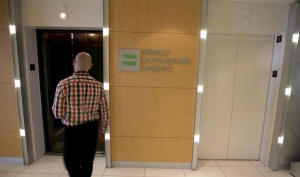|
Doping: WADA in the crosshairs, as IOC members fume at late response
 Send a link to a friend
Send a link to a friend
 [August 03, 2016]
By Karolos Grohmann [August 03, 2016]
By Karolos Grohmann
RIO DE JANEIRO (Reuters) - The World
Anti-Doping Agency was on the receiving end of scorching criticism
on Tuesday from the IOC who urged WADA to restore its reputation as
the war of words over the timing of its response to the Russian
doping scandal escalated.
WADA chief Craig Reedie was grilled at the International Olympic
Committee session for what members said was a failure to act on
information from whistleblowers of widespread doping in Russia until
it became public through the media last year.
As a result, a WADA-commissioned report on the extent of the abuse
was published in July, leaving the IOC to make a decision on whether
Russian athletes could participate in the Rio Games just weeks
before they were due to open.
The scandal has led to dozens of Russian athletes being banned from
the Olympics, which begin on Friday, including essentially the
entire track-and-field team.
But the IOC has come under fire for not imposing a blanket ban on
Russian athletes, despite the report revealing systematic
state-backed doping in the country.

Reedie, who is also an IOC Vice President, defended his
organisation's actions, saying WADA acted once concrete facts were
made available but added that things needed to improve.
"I like to believe all of the system is not broken," Reedie said.
"Part of the system is broken. We should start trying to identify
those parts that need attention."
"Findings (of the report) and (the) impact created challenging
timelines. It is almost impossible to think of the difficulty we
have faced in dealing with the very, very serious issues."
Reedie told reporters he had "not been thrown under the bus" by the
IOC.
"It is not often that sport is confronted with what has come out of
Russia in last 18 months. It is really difficult to handle. It puts
pressure on everyone," he said.
Earlier he faced the anger of several IOC members, with Alex Gilady,
of Israel telling the session: "Already in 2010 the whistleblower
came to WADA. They said they didn't know what to do with this.
"One has to scratch his head if WADA says they did not know what to
do with whistleblowers who came to them with clear information and
just left it."
[to top of second column] |

A man walks into an elevator at the head offices for the World
Anti-Doping Agency (WADA) in Montreal, November 9, 2015.
REUTERS/Christinne Muschi

Gilady was referring to middle-distance runner Yulia Stepanova, who
provided information to German broadcaster ARD which produced
several documentaries revealing the scandal.
"It is not the reputation of the IOC that needs to be restored but
the reputation of WADA," Gilady said.
VEILED CRITICISM
In another veiled criticism of WADA, IOC President Thomas Bach said:
"Given our remit, it is not the IOC that is responsible for the
accreditation and supervision of anti-doping laboratories.
"It is not the IOC which can be held responsible for alleged
corruption between the leadership of an international federation and
a national member federation to cover up doping.
Calls for an all-out ban on Russian competitors were overruled by
the IOC, which instead set a number of criteria, including a
spotless doping record and sufficient international doping test, for
Russians to be cleared to compete in Rio.
Argentine member Gerardo Werthein put the blame squarely on WADA.
"I believe that this delay by WADA and the failure to investigate
serious and credible allegations more swiftly has left the sports
movement... in a very difficult position."

"At times WADA has seemed to be more interested in publicity and
self-promotion rather than doing its job as a regulator."
(Reporting by Karolos Grohmann,; Editing by Neville Dalton and Ken
Ferris)
[© 2016 Thomson Reuters. All rights
reserved.]
Copyright 2016 Reuters. All rights reserved. This material may not be published,
broadcast, rewritten or redistributed. |